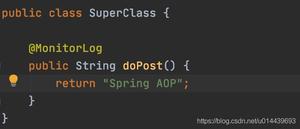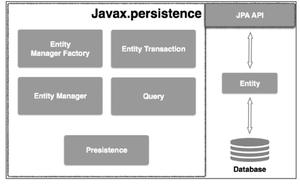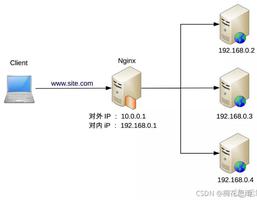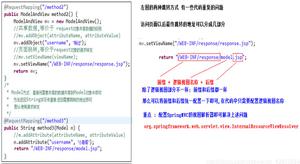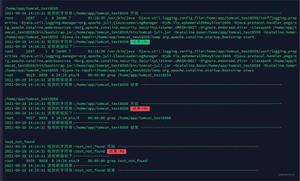一起学Spring之注解和Schema方式实现AOP
本文内容纲要:
- 概述- 实现AOP的三种方式:
- 通过注解方式实现AOP
- 步骤如下:
- 1. 定义一个类,并在类上面增加@Aspect注解,表名此类为切面通知类。
- 2. 前置通知函数
- 3. 后置通知
- 4. 异常通知
- 5. 环绕通知
- 6. 最终通知
- 7. 除了上述注解之外,还需要在Sping容器中,配置对注解的支持和AOP的自动扫描。
- 通过Schema方式实现AOP
- 1. 定义一个普通的类,分别实现各种功能的通知,参数和注解方式的一致。
- 2. 在Spring容器中配置
- 备注
概述
在上一篇,我们了解了通过实现接口和XML配置的方式来实现AOP,在实现注解方式AOP之前,先了解一下AspectJ。AspectJ是一个面向切面的框架,它扩展了Java语言,定义了AOP语法,能够在编译时实现代码的注入。Spring通过集成ApsectJ实现了以注解方式定义通知类,大大减少了配置文件的工作量。本文主要讲解通过注解方式和Schema方式实现AOP编程,仅供学习分享使用,如有不足之处,还请指正。
实现AOP的三种方式:
- 通过实现相应接口,并配置Xml进行实现,可以参考上一篇。
- 通过注解方式实现。
- 通过Schema的方式实现。
通过注解方式实现AOP
@Aspect 放在类的上面,表示这个类在Spring容器中是一个切点注入类。
@Component("logAnnotation") 表示此类是一个Bean,在Spring Ioc容器里面进行注入。
步骤如下:
1. 定义一个类,并在类上面增加@Aspect注解,表名此类为切面通知类。
如下所示:
1 package com.hex.second; 2
3 import org.aspectj.lang.JoinPoint;
4 import org.aspectj.lang.ProceedingJoinPoint;
5 import org.aspectj.lang.annotation.AfterReturning;
6 import org.aspectj.lang.annotation.AfterThrowing;
7 import org.aspectj.lang.annotation.Around;
8 import org.aspectj.lang.annotation.Aspect;
9 import org.aspectj.lang.annotation.Before;
10 import org.springframework.stereotype.Component;
11
12 /**
13 * @Aspect:声明类为一个通知类
14 * @Component("logAnnotation"):通过注解方法生成一个Bean,但是需要配置注解的支持
15 * 通过注解的方式声明通知
16 * @author Administrator
17 *
18 */
19 @Component("logAnnotation")
20 @Aspect
21 public class LogAspectAnnotation {
22
23 }
2. 前置通知函数
@Before("execution(public void com.hex.second.StudentServiceImpl.addStudent(com.hex.second.Student))") 表示前置通知,用两个参数,默认为value值,指示切入点,告诉Spring在哪些地方进行注入。
JoinPoint 可以获取切入点的所有内容,包括目标对象,函数名称,参数,返回值等等。如下所示:
1 /**2 * 前置通知,@Before的参数为目标通知类的表达式
3 * JoinPoint 用来获取目标函数的参数及对象等信息
4 */
5 @Before("execution(public void com.hex.second.StudentServiceImpl.addStudent(com.hex.second.Student))")
6 public void MyBefore(JoinPoint jp){
7 System.out.println("我是注解方式的前置通知");
8 System.out.println("method="+jp.getSignature().getName()+",args数量="+jp.getArgs().length+",target="+jp.getTarget());
9 }
3. 后置通知
@AfterReturning(pointcut = "execution(public void com.hex.second.StudentServiceImpl.addStudent(com.hex.second.Student))",returning="returningValue") 表示后置通知,其中value和poingcut都表示切入点,功能一样。returning表示定义目标函数的返回值。如下所示:
1 /** 2 * 功能:后置通知
3 * 注解形式实现AOP通知时,参数不能随便写,否则和目标函数对应不上,会报错
4 * @param jp :切入点目标对象
5 * @param returningValue 返回值
6 */
7 @AfterReturning(pointcut = "execution(public void com.hex.second.StudentServiceImpl.addStudent(com.hex.second.Student))",returning="returningValue")
8 public void MyAfterReturning(JoinPoint jp,Object returningValue){
9 System.out.println("我是注解方式的后置通知");
10 System.out.println("返回值是:"+returningValue);
11 }
4. 异常通知
@AfterThrowing(pointcut="execution(public void com.hex.second.StudentServiceImpl.addStudent(com.hex.second.Student))",throwing="e") 表示异常通知,其中trowing表示将抛出异常绑定到参数中。当切入函数抛出异常时将会触发,如下所示:
1 /**2 * 异常通知
3 */
4 @AfterThrowing(pointcut="execution(public void com.hex.second.StudentServiceImpl.addStudent(com.hex.second.Student))",throwing="e")
5 public void MyAfterThrow(JoinPoint jp,Throwable e){
6 System.out.println("我是注解方式的异常通知");
7 }
5. 环绕通知
@Around(value="execution(public void com.hex.second.StudentServiceImpl.addStudent(com.hex.second.Student))") 环绕通知功能最全面,可以实现其他几种,其中参数使用ProceedingJoinPoint,是JoinPoint的子类。
1 /** 2 * 环绕通知
3 * @param jp 才用的是JoinPoint的子类
4 */
5 @Around(value="execution(public void com.hex.second.StudentServiceImpl.addStudent(com.hex.second.Student))")
6 public void MyAround(ProceedingJoinPoint jp){
7 Object obj = null;
8 try {
9
10 // 前置通知
11 System.out.println("注解环绕实现前置通知。。。");
12 System.out.println("环绕通知:target="+jp.getTarget()+",method="+jp.getSignature().getName()+",args="+jp.getArgs().length);
13 // 控制目标方法的执行 obj表示目标方法的返回值,表示执行addStudent(student)方法
14 //此方法控制目标方法的执行,如果不写此方法,则目标方法不会执行,此方法前的是前置通知,此方法后的是后置通知
15 obj = jp.proceed();
16 // 后置通知
17 System.out.println("注解环绕实现后置通知。。。");
18 } catch (Throwable e) {
19 // 异常通知
20 System.out.println("注解环绕实现异常通知。。。");
21 }finally{
22 //最终通知
23 System.out.println("注解环绕实现最终通知。。。");
24 }
25 }
6. 最终通知
@After("execution(public void com.hex.second.StudentServiceImpl.addStudent(com.hex.second.Student))") 表示最终通知,不管是否抛出异常,都会得到执行,类似于finally。如下所示:
1 /**2 * 最终通知,@After的参数为目标通知类的表达式
3 * JoinPoint 用来获取目标函数的参数及对象等信息
4 */
5 @After("execution(public void com.hex.second.StudentServiceImpl.addStudent(com.hex.second.Student))")
6 public void MyAfter(JoinPoint jp){
7 System.out.println("我是注解方式最终通知");
8 System.out.println("method="+jp.getSignature().getName()+",args数量="+jp.getArgs().length+",target="+jp.getTarget());
9 }
7. 除了上述注解之外,还需要在Sping容器中,配置对注解的支持和AOP的自动扫描。
如下所示:
1 <?xml version="1.0" encoding="UTF-8"?> 2 <beans xmlns="http://www.springframework.org/schema/beans"
3 xmlns:xsi="http://www.w3.org/2001/XMLSchema-instance"
4 xmlns:p="http://www.springframework.org/schema/p"
5 xmlns:aop="http://www.springframework.org/schema/aop"
6 xmlns:context="http://www.springframework.org/schema/context"
7 xsi:schemaLocation="http://www.springframework.org/schema/beans
8 http://www.springframework.org/schema/beans/spring-beans.xsd
9 http://www.springframework.org/schema/aop
10 http://www.springframework.org/schema/aop/spring-aop.xsd
11 http://www.springframework.org/schema/context
12 http://www.springframework.org/schema/context/spring-context.xsd">
13
14 <!-- 服务类 -->
15 <bean id="studentService" class="com.hex.second.StudentServiceImpl">
16
17 </bean>
18 <!-- 将addStudent和通知进行关联 -->
19 <!-- 配置对注解方式AOP的支持 -->
20 <aop:aspectj-autoproxy></aop:aspectj-autoproxy>
21 <!-- 配置对注解的扫描 -->
22 <context:component-scan base-package="com.hex.second"></context:component-scan>
23 </beans>
通过Schema方式实现AOP
通过Schema方式实现步骤如下:
1. 定义一个普通的类,分别实现各种功能的通知,参数和注解方式的一致。
如下所示:


1 package com.hex.second; 2
3 import org.aspectj.lang.JoinPoint;
4 import org.aspectj.lang.ProceedingJoinPoint;
5
6 /**
7 * 通过Schema配置的方式实现通知
8 * @author Administrator
9 *
10 */
11 public class LogAspectSchema {
12 /**
13 * 前置通知,@Before的参数为目标通知类的表达式
14 * JoinPoint 用来获取目标函数的参数及对象等信息
15 */
16 public void MyBefore(JoinPoint jp){
17 System.out.println("我是Schema方式的前置通知");
18 System.out.println("method="+jp.getSignature().getName()+",args数量="+jp.getArgs().length+",target="+jp.getTarget());
19 }
20
21 /**
22 * 功能:后置通知
23 * Schema形式实现AOP通知时,参数不能随便写,否则和目标函数对应不上,会报错
24 * @param jp :切入点目标对象
25 * @param returningValue 返回值
26 */
27 public void MyAfterReturning(JoinPoint jp,Object returningValue){
28 System.out.println("我是Schema方式的后置通知");
29 System.out.println("返回值是:"+returningValue);
30 }
31
32 /**
33 * 异常通知
34 */
35 public void MyAfterThrow(JoinPoint jp ,Throwable ex){
36 System.out.println("我是Schema方式的异常通知");
37 System.out.println("ex:"+ex.getMessage());
38 }
39
40 /**
41 * 环绕通知
42 * @param jp 才用的是JoinPoint的子类
43 */
44 public void MyAround(ProceedingJoinPoint jp){
45 Object obj = null;
46 try {
47
48 // 前置通知
49 System.out.println("Schema环绕实现前置通知。。。");
50 System.out.println("Schema环绕通知:target="+jp.getTarget()+",method="+jp.getThis()+",args="+jp.getArgs().length);
51 // 控制目标方法的执行 obj表示目标方法的返回值,表示执行addStudent(student)方法
52 //此方法控制目标方法的执行,如果不写此方法,则目标方法不会执行,此方法前的是前置通知,此方法后的是后置通知
53 obj = jp.proceed();
54 // 后置通知
55 System.out.println("Schema环绕实现后置通知。。。");
56 } catch (Throwable e) {
57 // 异常通知
58 System.out.println("Schema环绕实现异常通知。。。");
59 }finally{
60 //最终通知
61 System.out.println("Schema环绕实现最终通知。。。");
62 }
63 }
64
65 /**
66 * 最终通知
67 * @param jp
68 */
69 public void MyAfter(JoinPoint jp){
70 System.out.println("我是Schema方式的最终通知");
71 }
72 }
View Code
2. 在Spring容器中配置
首先将通知类注入到Spring IOC容器中,然后配置aop:config将业务类和切面类关联起来。如下所示:


1 <?xml version="1.0" encoding="UTF-8"?> 2 <beans xmlns="http://www.springframework.org/schema/beans"
3 xmlns:xsi="http://www.w3.org/2001/XMLSchema-instance"
4 xmlns:p="http://www.springframework.org/schema/p"
5 xmlns:aop="http://www.springframework.org/schema/aop"
6 xmlns:context="http://www.springframework.org/schema/context"
7 xsi:schemaLocation="http://www.springframework.org/schema/beans
8 http://www.springframework.org/schema/beans/spring-beans.xsd
9 http://www.springframework.org/schema/aop
10 http://www.springframework.org/schema/aop/spring-aop.xsd
11 http://www.springframework.org/schema/context
12 http://www.springframework.org/schema/context/spring-context.xsd">
13
14 <!-- 服务类 -->
15 <bean id="studentService" class="com.hex.second.StudentServiceImpl">
16
17 </bean>
18 <bean id="logSchema" class="com.hex.second.LogAspectSchema"></bean>
19 <aop:config>
20 <!-- 配置切入点 -->
21 <aop:pointcut expression="execution(public void com.hex.second.StudentServiceImpl.deleteStudent(int)) or execution(public void com.hex.second.StudentServiceImpl.addStudent(com.hex.second.Student))" id="pc"/>
22 <aop:aspect ref="logSchema">
23 <!-- 通过Schema实现的通知 -->
24 <aop:before method="MyBefore" pointcut-ref="pc"/>
25 <aop:after-returning method="MyAfterReturning" pointcut-ref="pc" returning="returningValue"/>
26 <aop:after-throwing method="MyAfterThrow" pointcut-ref="pc" throwing="ex" />
27 <aop:around method="MyAround" pointcut-ref="pc"/>
28 <aop:after method="MyAfter" pointcut-ref="pc"/>
29 </aop:aspect>
30 </aop:config>
31 </beans>
View Code
备注
假如你不够快乐
也不要把眉头深锁
人生本来短暂
为什么 还要栽培苦涩
打开尘封的门窗
让阳光雨露洒遍每个角落
走向生命的原野
让风儿熨平前额
博大可以稀释忧愁
深色能够覆盖浅色
本文内容总结:概述,实现AOP的三种方式:,通过注解方式实现AOP,步骤如下:,1. 定义一个类,并在类上面增加@Aspect注解,表名此类为切面通知类。,2. 前置通知函数,3. 后置通知,4. 异常通知,5. 环绕通知,6. 最终通知,7. 除了上述注解之外,还需要在Sping容器中,配置对注解的支持和AOP的自动扫描。,通过Schema方式实现AOP,1. 定义一个普通的类,分别实现各种功能的通知,参数和注解方式的一致。,2. 在Spring容器中配置,备注,
原文链接:https://www.cnblogs.com/hsiang/p/11747309.html
以上是 一起学Spring之注解和Schema方式实现AOP 的全部内容, 来源链接: utcz.com/z/296908.html


